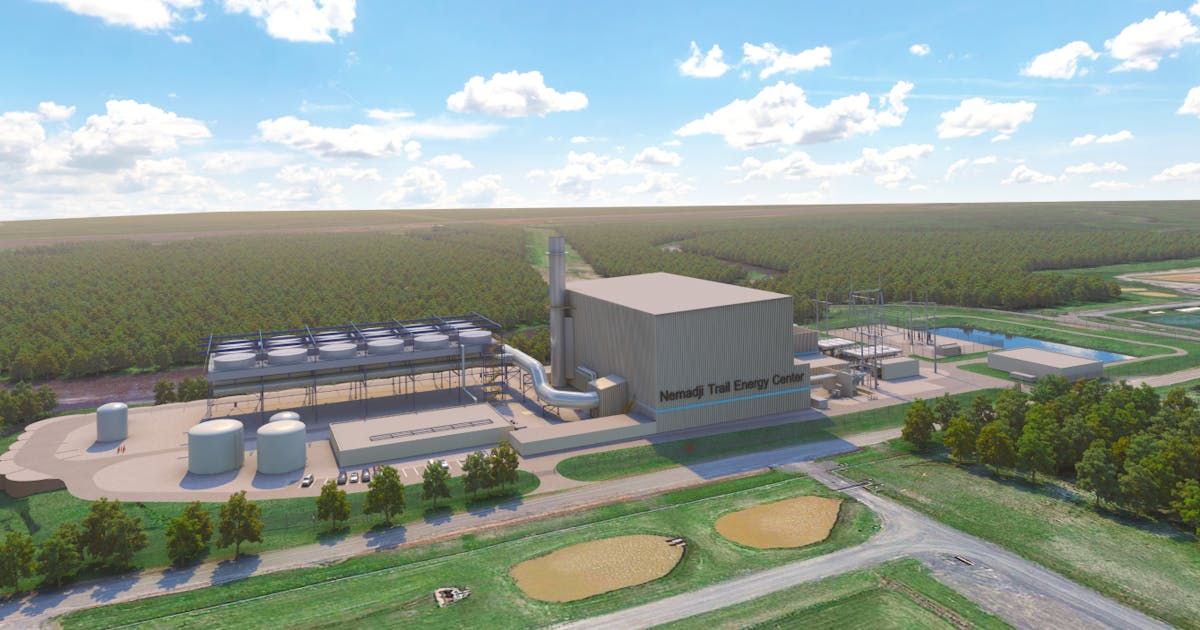Superior, Wis., denies utilities' land use requests for $1B power plant
The Wednesday night City Council decision adds a new hurdle for the Nemadji Trail Energy Center. A proposed $1 billion gas-fired power plant in Superior, Wis., has failed to move forward in the city's approval process, potentially setting up a legal battle between the city and utilities behind the project. The Nemadji Trail Energy Center (NTEC), intended as a back-up power provider to support expansion of wind and solar energy plants, has been controversial due to its location near the Nemadja River and proximity to an Anishinaabe mass grave. Local labor unions and business development groups support the facility for its jobs and benefits, but concerns have been raised about potential harm to public health and the environment through its emissions. The project has cleared many state and federal regulatory hurdles but remains under legal challenges.

Published : 4 weeks ago by Star Tribune, Jana Hollingsworth in Environment
DULUTH — A proposed $1 billion gas-fired power plant planned for Superior, Wis., failed to move forward in the city's approval process Wednesday night, potentially setting up a legal battle between the city and the utilities behind the project.
The Nemadji Trail Energy Center (NTEC) is intended as a back-up power provider to support expansion of wind and solar energy plants. It would be owned by Minnesota Power, which is expected to build and operate the plant; Wisconsin's Dairyland Power Cooperative; and North Dakota-based Basin Electric Power Cooperative. Local labor unions and business development groups support the 625-megawatt facility for the jobs it would create, and the utilities see natural gas as a way to support the transition to clean energy and away from coal.
But the project is contentious for a host of reasons including its location along the unstable banks of the Nemadji River, which flows into Lake Superior, and its proximity to an Anishinaabe mass grave and other cemeteries. Residents — especially those in neighborhoods close to the proposed site — have also shared worry about its potential harm to public health and the environment through its emissions.
On Wednesday, some councilors said they'd like to pass the street vacation and rezoning measures because it would put into motion public hearings. A final council decision would come after those hearings. Others said the dozens of comments from community members heard at previous meetings had been enough to decide how the city should proceed.
Environmental groups and area tribes who say the threat of climate change is too great to build new fossil-fuel infrastructure have long opposed NTEC. Fond du Lac Band of Lake Superior Chippewa Chairman Kevin DuPuis Sr. spoke at the meeting, and said the band's concerns — cultural, legal and environmental — were ignored through the federal review of the project.
"The proposed project would be located within the traditional homelands of the band," he said, retained through treaty rights. It's also next to a mass grave where Anishinaabe bodies were moved from nearby Wisconsin Point more than a century ago to make way for ore docks that were never built.
"Protecting our ancestors at this site is critical to the band," DuPuis said, encouraging the council to deny the NTEC requests.
The U.S. Environmental Protection Agency challenged NTEC's environmental review in 2022, but the project has cleared many state and federal regulatory hurdles over several years. However, it remains enmeshed in unresolved legal challenges, and waits on a U.S. Army Corps of Engineers wetlands permit decision and decision on a major federal loan to help pay for the project.
Both Superior Mayor Jim Paine, who opposes the project, and a spokeswoman from Minnesota Power have said the city and NTEC owners could end up in court over the controversy.
